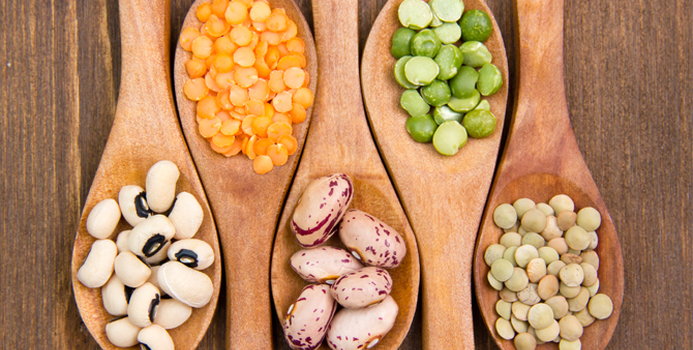Niacin is an important B vitamin found in animal foods like red meat, liver and fish. It's also found in some plant foods like beans, carrots and leafy green vegetables. Niacin helps protect against cardiovascular disease and it also supports cognitive function, the nervous system and the digestive tract, so it's important to get enough niacin into your daily diet. Use FitDay to keep track of your calories and make sure you're getting adequate nutrition on a diet that allows for weight loss.
The Role of Niacin in Your Body
Niacin is one of the most important nutrients in your diet, and it's water soluble. That means that your body excretes excess niacin in your urine, rather than storing it. Therefore, you need to eat a steady supply of niacin each day to ensure that you don't suffer from niacin deficiency.
Niacin protects your heart by lowering blood levels of "bad" LDL cholesterol and preventing the accumulation of arterial plaque. Your digestive system, nervous system and brain need niacin to function. Niacin also helps your body make new DNA, and it helps your body use insulin efficiently to control blood sugar levels. Your body also needs niacin to process fats.
Medical Uses for Niacin
Niacin has a number of therapeutic uses. It's often used to treat ateriosclerosis (coronary heart disease, or hardening of the arteries). Niacin can help keep blood cholesterol levels low to protect your heart. Niacin therapy has also been used to treat arthritis, diabetes and acne, as well as mental disorders like dementia, schizophrenia and psychosis.
Getting Enough Niacin Into Your Daily Diet
You won't be able to get enough niacin from your diet alone to experience medical benefits; for that, you'll need to obtain high dose niacin supplements on a doctor's prescription. However, you still need some niacin each day; men need about 16 mg per day and women need 14 mg per day unless they are pregnant or nursing (pregnant and breastfeeding women have higher niacin requirements). It's crucial that you get enough niacin in your diet on a daily basis, because your body can't store this important vitamin. Luckily, a substantial number of foods are high in niacin.
Niacin is found in red meat, liver, kidneys, chicken, turkey and fish. Salmon and tuna are especially high in niacin, but be careful with consumption of these fish because they can contain high levels of mercury and other pollutants. Eat salmon and tuna only two or three times per week to avoid the ill effects of mercury and the other pollutants often found in fish.
Vegetables that have a high niacin content include crimini mushrooms, which should be eaten raw for the maximum nutritional benefit. Green leafy vegetables are high in niacin, as are tomatoes and asparagus. Coffee also contains high levels of niacin. To get the most nutritional benefit from your vegetables, eat them raw or lightly steamed.



